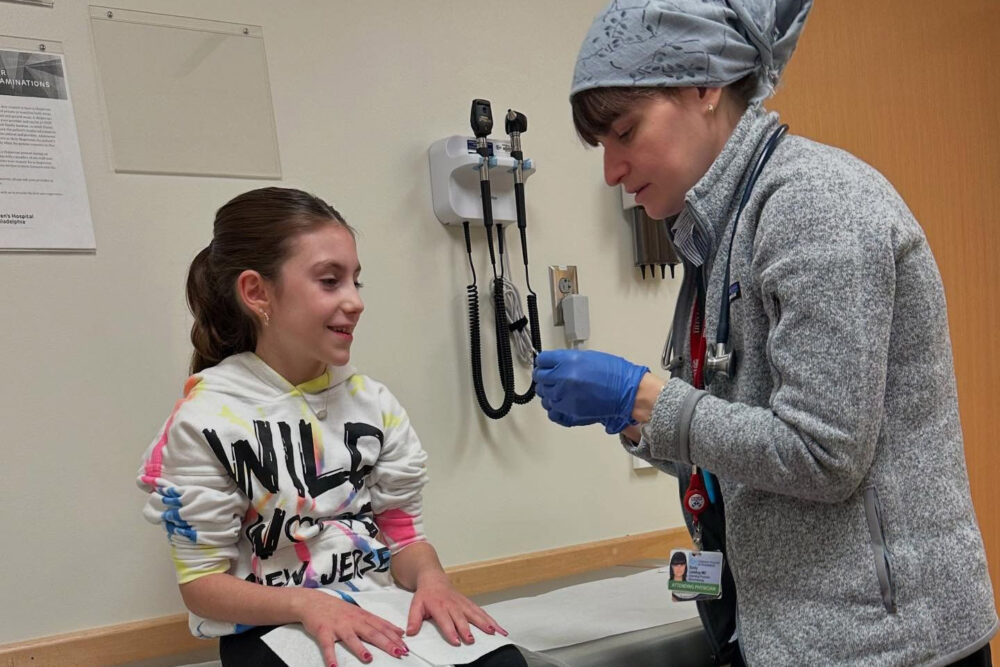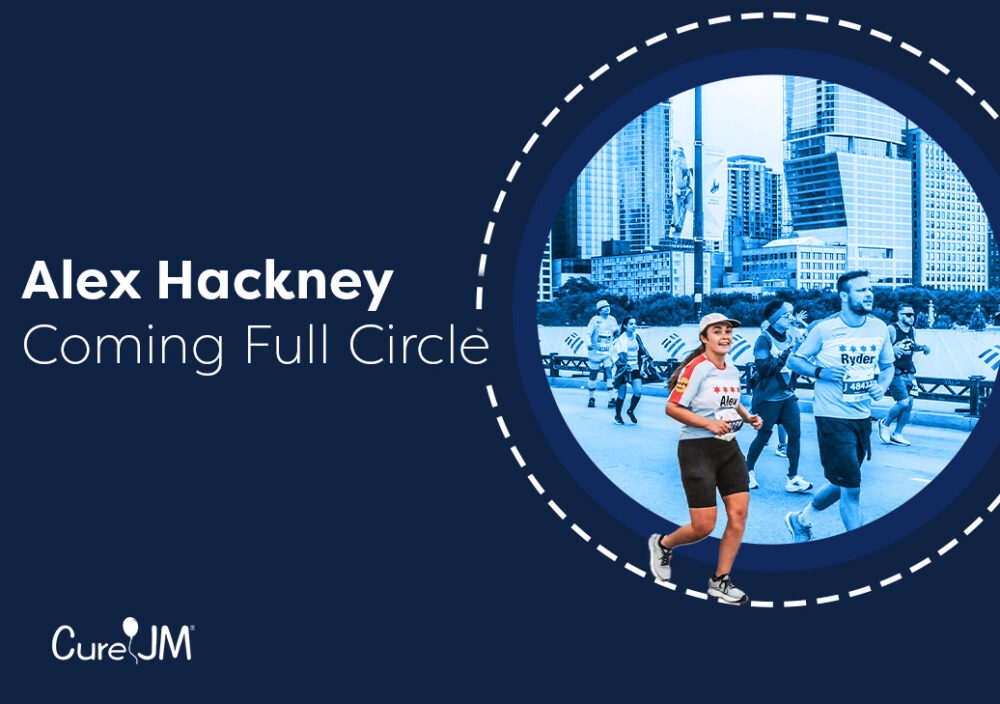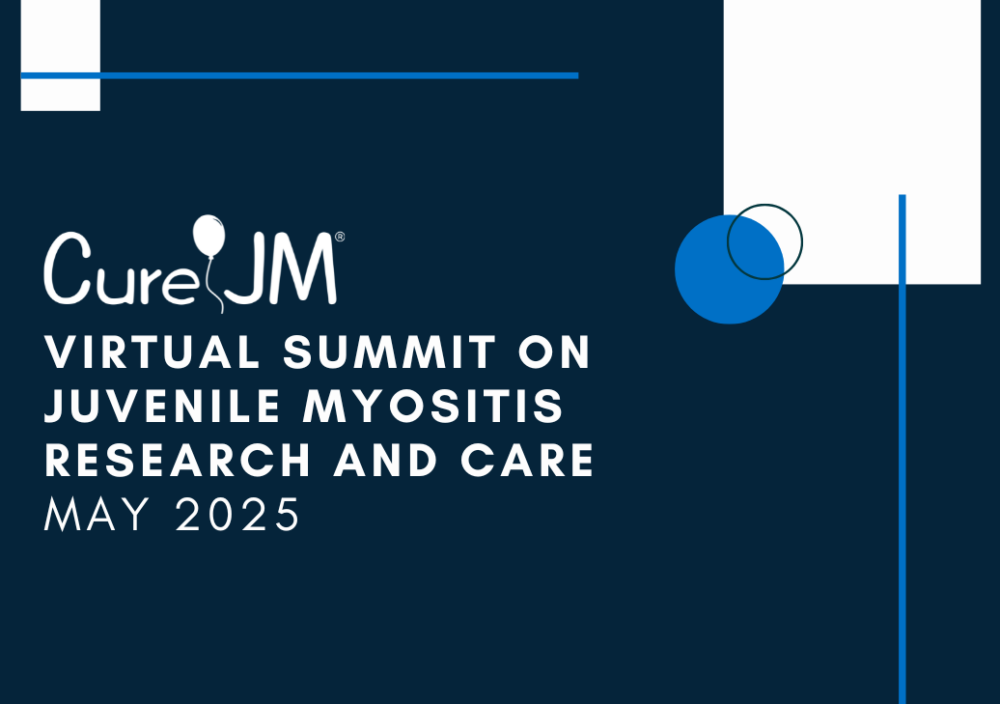Help researchers find the cause and a cure for JM by volunteering for these important studies.
- JDM Single Cell Skin Atlas Study
- Efgartigimod
- Myorisk
- Healthy Friends and Family Members Needed
- Wanted: Patients with Juvenile Dermatomyositis, Adult Dermatomyositis, or Lupus
- Premature Atherosclerosis in Juvenile Dermatomyositis
Please contact james.tealy@curejm.org for further information.
Now Enrolling! JDM Single Cell Skin Atlas Study
Cure JM families are invited to take part in an important new research effort at the University of California, San Francisco (UCSF). The JDM Single Cell Skin Atlas Study is helping scientists understand how juvenile dermatomyositis affects individual cells within the skin, muscle, and lungs.
If you or your child have previously had a skin biopsy collected as part of standard medical care, you may be able to contribute that sample to accelerate JM research.
View the Recruitment Flyer (PDF) and Take the Survey
Urgently Needed: Myorisk Study
Currently enrolling patients with juvenile dermatomyositis or polymyositis who have tested positive for Jo1 or other anti-synthetase autoantibodies within the first two years of diagnosis. For the MYORISK study, patients and controls can enroll from home without traveling to Bethesda. Adam Schiffenbauer, MD, is the Principal Investigator, and Lisa G. Rider, MD, is the Associate Investigator on this study. Please call Nastaran Bayat, the study coordinator, for more information or to enroll. Nastaran Bayat can be reached directly at 301.451.2348 or nastaran.bayat@nih.gov.
You can also enroll by calling 800.411.1222.
Download a Flyer
Click Here for More Information
Healthy Friends and Family Members Needed
Doctors at the National Institutes of Health (NIH) are researching to better understand the environmental risk factors that may result in myositis. We are looking for healthy adults and children willing to participate in the MYORISK Study as control participants.
Your participation will include the following:
• Completing a single clinic visit
• Completing surveys
• Sending in a house dust sample
• Providing a blood sample
Compensation is available.
Contact: 800.411.1222 • TYY: 866.411.1010 • https://clinicaltrials.gov/study/NCT01276470
Wanted: Patients with Juvenile Dermatomyositis, Adult Dermatomyositis, or Lupus
Age:
15+
Qualifications:
Either within 12 months of exposure to the COVID-19 infection or 2nd dose of vaccine OR patients who have had no exposure to COVID-19 infection or vaccine.
Study Details:
Patients need to be seen at the NIH Clinical Center in Bethesda, Maryland, and return 12 months later for re-evaluation. Patients we have seen previously in our NIH research studies are of great interest for this study.
The study requires history and physical, clinical disease assessment, questionnaires, blood work where many tubes are drawn, and an EKG which can be completed on the first day. For interested patients, a blood vessel reactivity study can be scheduled, which requires a second day for the visit.
Also of interest is enrolling healthy control subjects with no exposure to COVID-19 infection or vaccine unrelated to patients with these autoimmune conditions.
Contact:
Office of Patient Recruitment
800.411.1222 800.877.8339 TTY/ASII
Email: prpl@cc.nih.gov
Ask for study #000207-AR
Efgartigimod trial: Accepting Juvenile Onset
Age:
18+
Qualifications:
- Agrees to use contraceptive measures consistent with local regulations and women of childbearing potential must have a negative urine pregnancy test at baseline before receiving the investigational medicinal product
- Has completed trial ARGX-113-2007
- Being capable of providing signed informed consent and complying with protocol requirements
Study Details:
The purpose of this study is to measure the long-term safety and tolerability of efgartigimod PH20 SC in adult participants with IIM who previously participated in ARGX-113-2007. Secondary objectives include efficacy measures of efgartigimod PH20 SC in participants with IIM.
Enrollment: By Invitation
Premature Atherosclerosis in Juvenile Dermatomyositis
Study of Premature Atherosclerosis in Juvenile Dermatomyositis conducted at the Children’s Hospital at Montefiore, Bronx, NY. Currently enrolling patients age 2-21 with a diagnosis of JDM. To be eligible patients cannot be currently using medications that alter lipid metabolism or endothelial function (including lipid lowering agents), be a smoker or have another chronic illness (other than JDM), Please call (718) 696-2405.
More Information
Children with juvenile dermatomyositis (JDM) may be at increased risk of early heart disease due to risk factors including high cholesterol, abnormalities with blood sugar, high blood pressure, limited physical activity, chronic inflammation and the medications that they take. In addition, patients with JDM often have inflammation in their blood vessels which may cause the blood vessels to function improperly. Researchers have found that dysfunctional blood vessels may be one of the first signs of early heart disease. Although it is rare, involvement of the heart and heart attacks have been reported as causes of death in cases of children and adults with dermatomyositis.
This study will use a safe ultrasound technique to examine the function of the blood vessels in children with JDM. Risk factors will be examined to determine if we can identify which ones may cause the greatest risk of early heart disease in these children. With the support of Cure JM and the CARRA network, we plan to perform an additional study to examine these risk factors in a large population of children with JDM and how we can prevent heart disease in these young children.
The long-term goal of our research is to identify which patients with JDM may be at the highest risk of early heart disease and to determine if medications and dietary changes may help to prevent the development of early heart disease. In addition, the information gained from this study regarding the association between various risk factors and early heart disease increases physician awareness and monitoring of these risk factors in children with JDM. Finally, by demonstrating this safe ultrasound technique may be used as a measure of the very first signs of heart disease in children with JDM, we plan to provide physicians with a screening tool for pediatric patients with identifiable risk factors.
Study details:
Location
This study will be conducted at the Children’s Hospital at Montefiore, Bronx, New York.
Principal Investigator
Dr. Dawn Wahezi, MD, MS
Contact #
Eligible Participants
Children, adolescents, and young adults ages 2-21 with a diagnosis of JDM.
Exclusion Criteria
(1) diagnosis of a chronic illness other than JDM
(2) current use of medications that alter lipid metabolism or endothelial function, including lipid-lowering agents
(3) currently smoking





